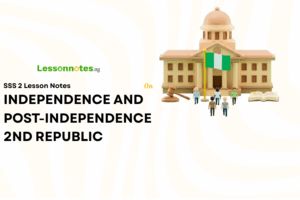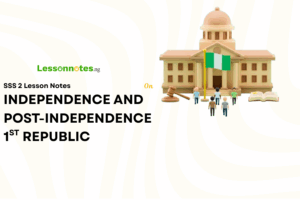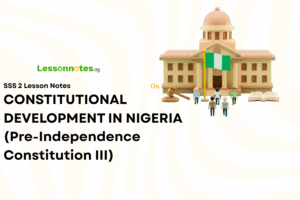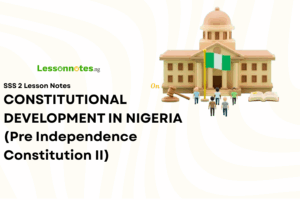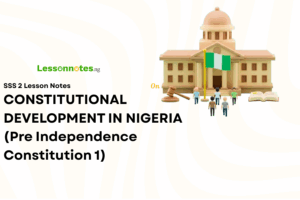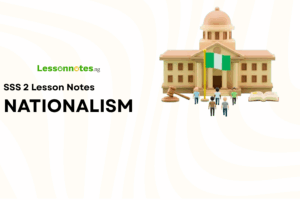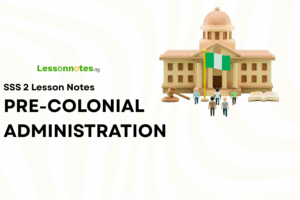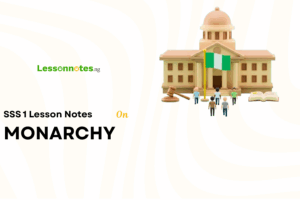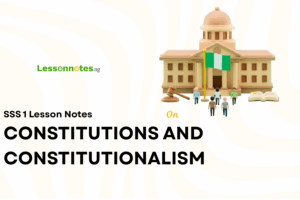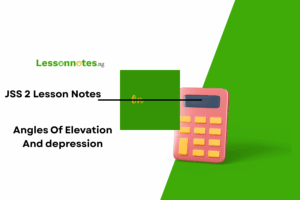The Executive & Judiciary Arm of Government SS1 Government Lesson Note
Download Lesson NoteTopic: The Executive & Judiciary Arm of Government
MEANING OF EXECUTIVE
This is the organ of government that is responsible for implementing government policies and is responsible for the day-to-day administration of the country. The executive arm of government is the same as the administration or cabinet, the president or prime minister of a country, governors of states, ministers, the civil service, the armed forces, the police, etc, belong to the executive arm of government.
FUNCTIONS OF EXECUTIVE
- Implementation of Laws: The executive implements the laws made by the legislature. This is the primary function of the executive.
- Appointment of Top Officials: Ministers ambassadors, high commissioners and other important officials are appointed by the president with legislative endorsement.
- Giving Assent to Bill: Bills passed by the legislature require the assent of the president to become law.
- Preparation of Budget: The executive prepares the annual budget of the government which is presented to the parliament for approval.
- Maintenance of Law and Order: The law enforcement agencies, and the police are responsible for these functions.
- Provision of social amenities like good roads, schools, and electricity.
- Recommending Policy: The executive sends bills to parliament proposing ideas on government programmes and policies.
- Declaration of Wars: It can declare war, maintain peace and fight back against foreign invasion.
- Defense of the country against external aggression.
TYPES OF EXECUTIVE
- Single Executive/Presidential Executive: This is a system whereby all executive powers of government are vested in the president. The president is the head of state, head of government and the commander-in-chief of the armed forces.
Examples of countries that practice this system include the USA, Nigeria, Brazil, Chile, Tanzania, etc.
- Dual Executive/Parliamentary Executive: This is a system whereby one person is the head of state, while another person is the head of government. The head of state may be a monarch or ceremonial president, while the head of government is usually the prime minister.
Countries that practice this system include Belgium, Italy, Sweden and Nigeria in the first republic.
- Collegiate Executive: It is a system in which several people form a council which rotates the chairmanship of the council and leadership of the government in turns among its members. It was used during Olympio’s rulership in Togo.
THE JUDICIARY
The judiciary as the third organ of government is responsible for the interpretation of the laws of the state and applies the existing law to individual cases. It refers to the system of courts and judges in a country. The Nigeria court system is headed by the Supreme Court which is the final court. The next is the court of appeal.
Besides, we have the High Court and Sharia as well as Magistrate Courts. The customary courts handle customary cases.
FUNCTIONS OF THE JUDICIARY
- Interpretation of law: The court interprets the laws of the state and applies the existing law to individual cases.
- Judicial Review: This is the responsibility of the judiciary to determine the constitutionality or otherwise of legislative enactments and executive decisions.
- Settlement of Disputes: the judiciary exercises power in settling disputes between different individuals or groups, individual and political institutions, and different political institutions.
- Punishment of Offenders: The courts have the power to punish those who have offended the laws of the land.
- Contribution to Law Making: In the process of interpreting the law and the exercise of the power of judicial review, the judiciary contributes to law-making.
- Protection of Individual Rights: The judiciary is often described as the last hope of the common man. When the rights of citizens are infringed upon, they seek redress in a court of law.
- Prevention of Wrongful acts: It serves as a watchdog on other organs of government. Legislative and executive excesses are redressed by the judiciary when brought before it.
INDEPENDENCE OF THE JUDICIARY
Independence of the judiciary refers to the ability of the courts to discharge their duties without undue external influence from other organs of government. The judiciary can only perform its role as an impartial arbiter and protector of individual rights if it is independent of other organs of government.
Ways of Guaranteeing the Independence of the Judiciary
- Appointment of judges by Independent Body: If the judges are appointed by the chief executive, he may appoint those who will be loyal to him.
- Tenure of Office: Judges should be allowed to hold office for a specified time
- Promotion of Judges: Promotion of judges should be made by an independent body and placed beyond the realm of politics.
- Immunity of Judges: Judges should be free from criminal and civil prosecution in the performance of their duties.
- Political Neutrality: Judges should not be allowed to take part in partisan politics.
- Remuneration: To prevent the executive from using the payment of salaries and allowances to exert influence on judges, their remuneration should be paid from a consolidated fund.
- Extra Security: Security should be provided for the judges in and outside the courts so that they will not be intimidated.
ASSIGNMENT
- The highest legislative body in Nigeria is called A. National Assembly B. House of Assembly C. Parliament D. Congress
- Unicameralism means A. two chambers B. one chamber C. three chambers. four chambers
- At the state level, Nigeria operates—- legislature A. unicameral B. bicameral C. multilateral D. zero cameral
- After which stage will a bill be said to have reached the committee stage A. committee report B. first reading C. second reading. fourth reading
- A bill passes through —– stages before becoming a law A. 4 B. 5 C. 6D. 7
- What is the relevance of the executive organ in government?
- State 6 functions of the judiciary as an organ of government.






